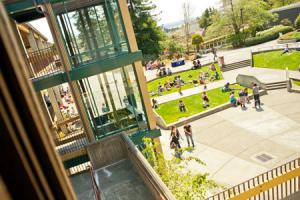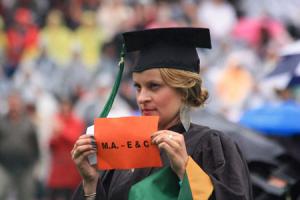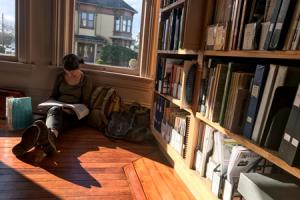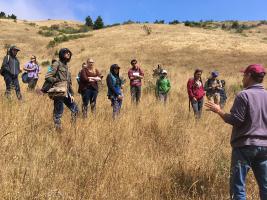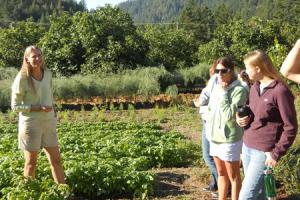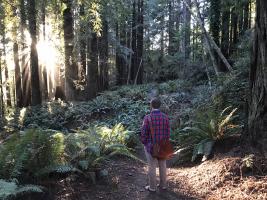News for EC/ENST students - 12/12/2022
This semester, the Campus Center for Appropriate Technology is hiring an External Co-Director. Alongside the Co-Director daily tasks, this staff member has a specific focus on:
- Social Media Marketing
- Creation of flyers and other informational material
- Campus Collaboration and Event Planning
- Coordination of the semesterly AT Transfer, zine-like snapshot and summary of CCAT's work and other highlights
- Email Newsletter and Internal Communications
- Community Outreach, especially for Event Collaborations and other Opportunities
- Giving CCAT Tours to students, classes, and community members
If any of this sounds like your jam, you are encouraged to apply for the position on Handshake! Join the team working on sustainability and appropriate technology education at Cal Poly Humboldt!
- A one-year $17,000 unrestricted cash award;
- Two multiday leadership training and cohort-building retreats;
- Access to other Switzer Foundation grant programs and career support; and
The Youth Climate Lab Toolbox is an open access digital library of interactive resources to help youth leverage their lived experiences and take action on key climate issues. The tools and activities were created to demystify climate policy processes, increase knowledge of the intersections of climate justice, and build skills such as critical thinking, design, advocacy and effective communication.
MA in Human and Environmental Geography,
MS in Geographic Information Science,
MS in Watershed Science, and
Ph.D. in Geography, offered jointly with the University of California, Santa Barbara.
Human geography: cities and urban environments, food, media, migration and borders, political ecology and livelihoods, children and youth geographies
Environmental geography: climate resilience, agent-based modeling, coastal planning and policy, agroforestry and agriculture
Geographic information science: cartography, visualization, big data analytics remote sensing of vegetation, water quality, fire, marine debris; spatial analysis and modeling, geocomputation, spatial decision support systems, participatory GIS
Watershed science: hydrologic and climate modeling, fire, water resources, climate change
Funding is available through graduate assistantships, teaching assistantships, and scholarships and grants. All Ph.D. students are fully funded for 4 years, including salary, tuition at SDSU and UCSB, and full health and other benefits. Research Assistantships are also available for the following grant-funded projects--students should contact the listed faculty member: Sustainable Agroecosystems - Remote Sensing / Land use change in the Arctic / satellite monitoring of water quality / mapping and mitigating arsenic exposure in Cambodia (4 projects, Dan Sousa, dan.sousa@sdsu.edu), Continental-scale hydrologic processes (Hilary McMillan, hmcmillan@sdsu.edu), Water quality and plastic on the US-Mexico border (Trent Biggs, tbiggs@sdsu.edu), Geocomputation and health Geography (Atsushi Nara, anara@sdsu.edu), Brownfields (2 projects, Jessica Barlow, jbarlow@sdsu.edu)

